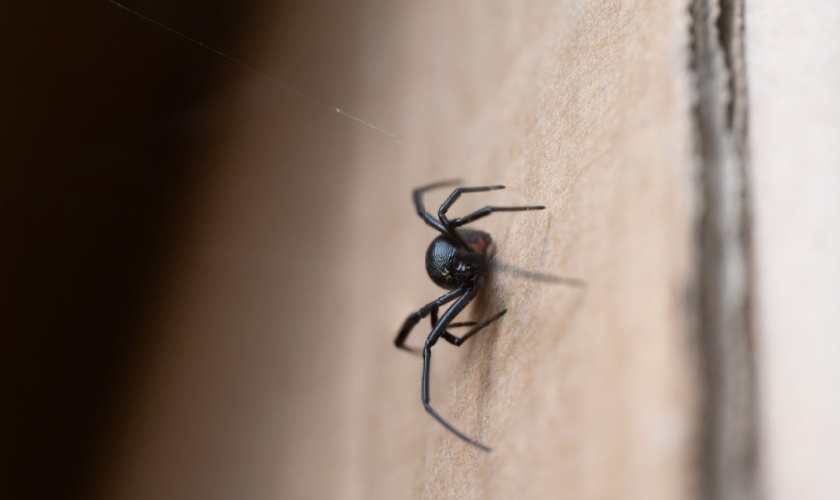Discovering spiders in your home can be an unsettling experience. These eight-legged creatures often evoke fear and anxiety, especially when they appear unexpectedly. While some spiders are beneficial and help control other pest populations, an excessive presence can be a cause for concern. Understanding why spiders have made your home their own is the first step toward managing and preventing infestations. Here are the primary reasons you might be experiencing a spider problem in your home:
1. Abundant Food Sources
Spiders are predators, and their presence often indicates an ample food supply. They primarily feed on insects such as flies, ants, mosquitoes, and other small arthropods. If your home has a high population of these pests, it will naturally attract spiders.
Factors Contributing to Abundant Food Sources:
- Poor Sanitation: Food crumbs, spills, and trash can attract insects, which in turn attract spiders.
- Unsealed Food: Open food containers can lure insects into your home.
- Infrequent Cleaning: Dust, cobwebs, and other debris can create environments where insects thrive.
2. Shelter and Hiding Spots
Spiders seek out environments that provide shelter and protection from predators and harsh conditions. Your home offers numerous hiding spots that spiders find ideal.
Common Hiding Spots:
- Cluttered Areas: Piles of clothes, boxes, and other clutter provide excellent hiding spots for spiders.
- Basements and Attics: These areas are often less frequently cleaned and checked, making them perfect for spider webs.
- Crawl Spaces: Dark, damp, and secluded crawl spaces are ideal habitats for spiders.
- Unused Rooms: Rooms that are rarely used can become breeding grounds for spiders.
3. Entry Points
Spiders can enter your home through various small openings. They are adept at finding their way in through even the tiniest of cracks and crevices.
Common Entry Points:
- Cracks and Gaps: Openings in walls, windows, doors, and foundations can provide entry points for spiders.
- Windows and Doors: Poorly sealed windows and doors can allow spiders to slip inside.
- Vents and Ducts: Spiders can use vents and ducts as pathways into your home.
4. Favorable Conditions
Certain environmental conditions within your home can create an inviting habitat for spiders.
Conditions Spiders Favor:
- Moisture: Spiders are attracted to damp areas. Bathrooms, kitchens, basements, and laundry rooms are common places where moisture can accumulate.
- Darkness: Spiders prefer dark, undisturbed areas where they can build their webs and hunt for prey.
- Warmth: During cooler months, spiders may seek the warmth of your home as they try to escape the cold.
5. Seasonal Changes
Spiders may invade homes more frequently during certain times of the year. Seasonal changes can drive spiders indoors seeking warmth, food, and shelter.
Seasonal Influences:
- Fall: As temperatures drop, spiders look for warmer places to overwinter, often leading them into homes.
- Spring and Summer: During breeding seasons, you might notice an increase in spider activity as they seek mates and build nests.
6. Outdoor Attractants
The environment surrounding your home can also impact the likelihood of spiders entering your home.
Outdoor Factors:
- Vegetation: Overgrown plants, bushes, and trees close to your home can provide a pathway for spiders.
- Woodpiles and Debris: Stacked wood, leaf piles, and other outdoor clutter can attract spiders, who may then find their way indoors.
- Lighting: Outdoor lighting attracts insects, which in turn attracts spiders looking for an easy meal.
7. Previous Infestations
If your home has had spider problems in the past, it’s possible that some eggs or hidden spiders were left behind, leading to recurring issues.
Lingering Issues:
- Unremoved Webs: Old webs can signal a good hunting ground for new spiders.
- Untreated Areas: Previous infestations may have left eggs or young spiders that are now maturing.
How to Address and Prevent a Spider Problem
Understanding why you have a spider problem is only the first step. Taking action to manage and prevent future infestations is crucial.
Steps to Take:
- Maintain Cleanliness: Regularly clean your home, focusing on removing food sources and clutter.
- Seal Entry Points: Inspect and seal any cracks, gaps, or openings in your home’s exterior.
- Reduce Moisture: Use dehumidifiers and fix any leaks to reduce moisture levels in your home.
- Outdoor Maintenance: Trim vegetation, move woodpiles away from the house, and reduce outdoor lighting or use yellow bug lights.
- Regular Inspections: Conduct regular inspections of your home, especially in less frequently used areas like basements, attics, and crawl spaces.
- Professional Pest Control: If the infestation is severe, hire a professional pest control service like Citra Pest Control to thoroughly address the issue.
Love your Home Again
Spiders are a common issue in many homes, including those in Morgan Hill, CA. Understanding the factors that attract spiders and taking proactive measures can help manage and prevent infestations. For more severe infestations, contact Citra Pest Control. We are happy to help you love your home again by eliminating spiders.

